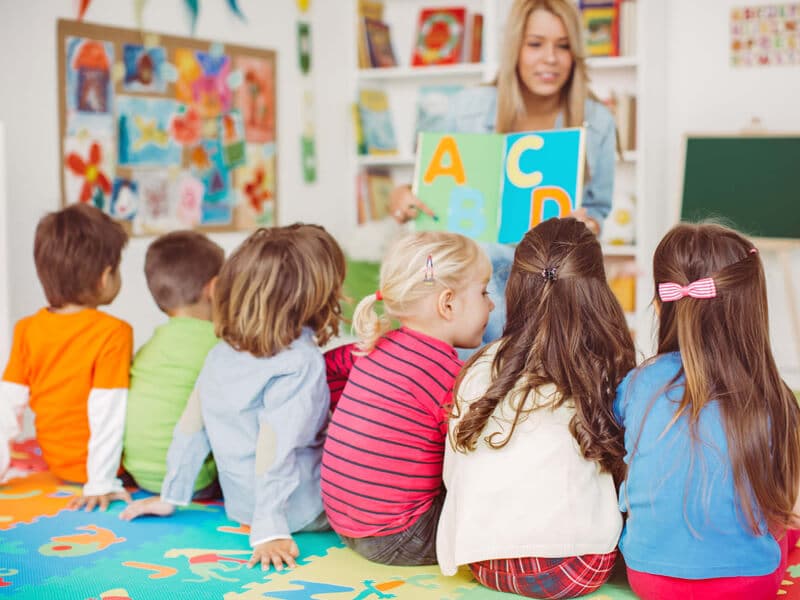Early Childhood Development is about the earliest years of a child’s life. Young children need adequate nutrition, loving protection and stimulation for their brains to grow. Recent advances in neuroscience have shown that babies’ brains form new connections at an astounding rate. According to Harvard University’s Center on the Developing Child more than 1 million connections are formed every single second – the fastest pace during our entire lifespan.
In the brain-building process, neural connections are shaped not only by our genes but also by the experiences we have in early childhood. And your child’s future success is built on this interaction between nature and nurture.
The problem early childhood development faces:
 Sadly, too many young children are not getting the essential input they need for healthy childhood development. When children are exposed to extremely stressful situations – such as abuse or neglect – over long periods their body triggers a response known as toxic stress. Without a protective adult acting as a buffer, this response can interfere with brain development. And as the child grows, toxic stress can result in mental, physical and behavioural difficulties in adulthood.
Sadly, too many young children are not getting the essential input they need for healthy childhood development. When children are exposed to extremely stressful situations – such as abuse or neglect – over long periods their body triggers a response known as toxic stress. Without a protective adult acting as a buffer, this response can interfere with brain development. And as the child grows, toxic stress can result in mental, physical and behavioural difficulties in adulthood.
Not only does this have long-term affects on the child’s health and happiness but also on their earning potential when they become adults. Inadequate childhood development results in recurring cycles of poverty, inequality and exclusion.
 We have known for quite some time just how important early childhood development is. But Governments have been slow in supporting this sector. For example, in 2012 only 27 sub-Saharan African were spending at least 0.01 per cent of gross national product on pre-primary education.
We have known for quite some time just how important early childhood development is. But Governments have been slow in supporting this sector. For example, in 2012 only 27 sub-Saharan African were spending at least 0.01 per cent of gross national product on pre-primary education.Here are some more worrisome facts:
- Nearly a quarter of children under the age of five suffer from stunting, caused by a lack of nutrition.
- Poor nutrition and poor sanitation can lead to developmental delays and a lack of progress in school.
- 300 million children under the age of five have been exposed to violence.
- In low- or middle-income country, poor early childhood development could mean that a person earns around one-quarter less in income, when they become an adult.
The Solution to early childhood development challenges:
If every child has a fair start in life, we could break inter-generational cycles of poverty. Early intervention for those babies who are most at risk can build resilience and reverse the harm done by toxic stress.
Thanks to the tireless work of Early Childhood Development advocates and the support from scientific evidence, more people are beginning to recognise importance of investing in the earliest years of a child’s life. And in 2015, early childhood development was included in the UN’s Sustainable Development Goals.
But parents need time and support to create a loving and safe environment for their babies.
Benefits of Early Childhood Development
1. Socialization, Cooperation and Teamwork:
Introducing our children to other children helps them to build friendships. It also helps them to gain self-confidence and feel less shy is social situations. When children interact with others they learn to share, cooperate and take turns – all of which helps to build patience and delayed gratification.
Teamwork teaches children to listen, to cooperate and to respect the opinions of others. And being able to work in a team ultimately makes people more emotionally intelligent and more employable.
2. Enthusiasm for Lifelong Learning:
When children have fun while learning they develop a thirst for knowledge. They respond to lessons with eagerness and enthusiasm, and their love of reading and discovery deepens. Parents are important role models in demonstrating the value of education to children. Introducing them to stimulating environments, like pre-schools, early on gives the message that education is a priority.
3. Resilience:
Children learn to manage their emotions when they experience their environment as consistent, secure and fair. Give children clear expectations and predictable consequences. When teachers and parents are able to provide environments with appropriate challenges and hands-on experiences, children build coping strategies to face larger challenges in life.
For more information about the importance of childhood development, or to book a consultation, contact Anel Annandale at 083 711 5267 or via email at anel@childpsych.co.za.

